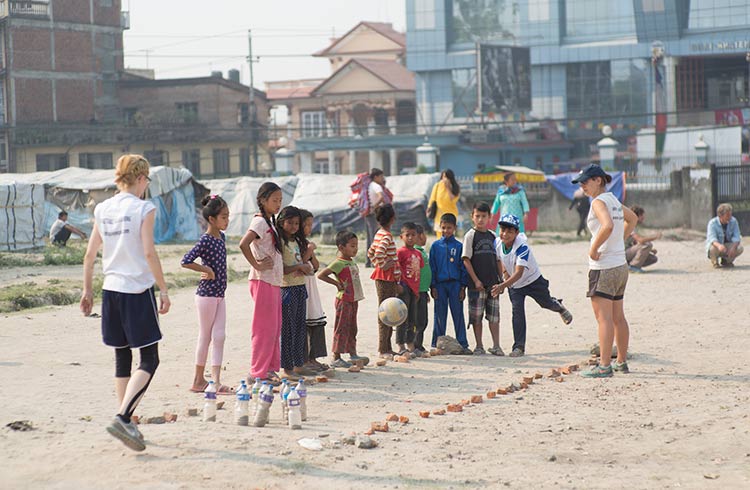Tips on Choosing an Ethical Volunteer Program
Although the road to volunteering is always paved with good intentions, it can be difficult to identify international projects that have a sustainable impact against those that don’t.
 Photo © Perry Grone
Photo © Perry Grone
Volunteering remains a valuable and rewarding activity – and these tips, from finding opportunities that suit your skills to asking the right questions, will help you identify the projects that merit your time.
- Looking at The Project’s Values
- Finding Reputable Projects to Match Your Skillset
- Choosing a Project that Provides Training to Volunteers
- Where Does the Organization’s Money Go?
- Chatting with Previous Volunteers
Look at the project’s values
A website can tell you a lot about an organization’s values. Do they publish annual impact reports evaluating what they've achieved? Do they employ local staff and avoid giving volunteers jobs that community members could do instead? Are projects designed in consultation with local people?
Responsible organizations listen to, and work to address the needs of a community, and regularly reflect on their successes and areas of improvement.
If the website doesn’t have evidence of this, move on to one that does.
Find reputable projects to match your skillset
If you want to know if an organization is truly committed to ethical volunteering, see who they accept onto their programs.
Volunteers are most effective when they’ve got experience in the field. If a project will allow you to teach when you’ve never worked with children before, or work in construction when you don’t know the difference between a hammer and a handsaw, alarm bells should start ringing.
Think about it: if you couldn’t do the job back at home, you’re not qualified to do it abroad. Instead, seek projects that match your skill set or provide the necessary training.
Choose a project that provides training to volunteers
If you’ve not yet got any professional skills to offer, don’t despair. Many reputable projects give you the tools to be effective, whether showing you how to care for animals in a wildlife sanctuary or helping you study to become a certified TEFL teacher.
The UK-based Project Trust, for example, provides pre-departure training in responsible travel habits, and how to be effective during their placement.
By doing this, organizations prove they’re investing in both their local communities and their volunteers. Communities get the assistance of trained, capable individuals, while volunteers feel empowered and ready for the challenges – and rewards – of volunteering abroad.
Where does the organization’s money go?
It’s normal to pay a fee to cover the costs of your volunteering placement. But, the question to ask before handing over the cash is where does this money actually go?
The more transparent the company is about its finances, the better. For example, agencies such as GVI publish reports outlining exactly how volunteers’ fees are spent.
If an organization can’t account for how donations are used, walk away. They should know where each and every dollar goes, and be happy to share this information with you.
Talk to previous volunteers
Previous volunteers can tell you plenty about how ethical a project really is. Raleigh International publish volunteer experiences on their site, while databases of opportunities, such as those found on Go Abroad and Go Overseas have plenty of honest participant reviews.
Don’t be afraid to ask to be put in touch with former volunteers. A brief chat can quickly give you a sense of the project, how valuable the organization’s work is, and whether you can truly make a difference by volunteering with them.
Related articles
Simple and flexible travel insurance
You can buy at home or while traveling, and claim online from anywhere in the world. With 150+ adventure activities covered and 24/7 emergency assistance.
Get a quote


No Comments